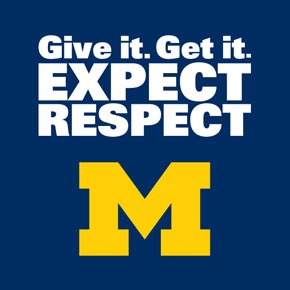DEI Toolkit
Welcome to the School of Social Work DEI Toolkit! The purpose of this toolkit is to provide material and resources that will strengthen your knowledge as you navigate a journey towards embodying DEI and anti-racist social work practice.
*Note: Some resources are only available to those with a Michigan account/email address.
Toolkit Resources
An Introduction
It is our responsibility as social workers to have a deep understanding of how our societal, cultural, and institutional structures and practices contribute to the ongoing marginalization of our clients and communities. It is even more important to know how to effectively challenge these systems and embed diversity, equity, and inclusion, and anti-racist frameworks throughout our work.
The following definitions are only some of the ways the terms have been conceptualized, and not do not represent a community-wide consensus. The complexity of the terms shed light on our varied lived experiences, as well as the ongoing conversation among scholars, practitioners, and other individuals about defining these concepts.
What is Social Justice?
Social justice includes a vision of society in which the distribution of resources is equitable and all members are empowered and are physically and psychologically safe and secure (Adams et al., 2007)
Looking for more? Watch this crash course on justice as a concept.
What is Privilege?
Unearned access to something of value solely because of one’s membership in a dominant social identity group (Adams et al., 2007).
What is Oppression?
- A system that maintains advantage and disadvantage based on stereotyped social group memberships. Operates on individual, institutional, and social/cultural levels that maintains the power structure within the agent identity groups. (Adams et al., 2007)
- Cumulative violence based on identity
What are Pronouns and why are they a must?
Pronouns are what we use when speaking of a singular person in the third person. Pronouns often assume the gender of the individual, which can often be incorrect. In order to respect others’ identity and create inclusive environments, it is important to use correct pronouns. Learn more about them here. One of the ways that you can incorporate the use of pronouns is by adding yours to your email signature.
